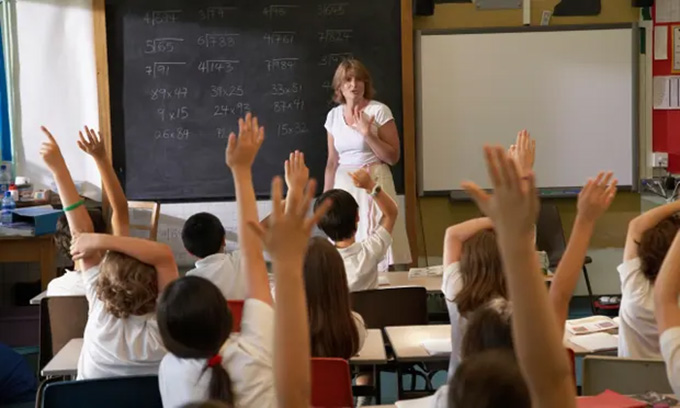
The pandemic has undermined possibly prosperous dreams and has even put an end to stories that have not had a chance to begin. Poverty, injustices and inequalities have increased.
Faced with this situation, as humanity, we must follow the ethical horizon proposed in the 2030 Agenda for Sustainable Development. It defines 17 objectives and 169 goals that challenge us to improve our world from an economic, ecological and social perspective.
The key to facing the challenge of improving the planet is to raise awareness among humanity as a whole. Transferring this commitment to the new generations is one of the challenges of the 21st century.
To do so, education must be based on four basic pillars, as they appear in the 1996 UNESCO report Education contains a treasure :
- Learning to know : discovering and understanding every detail of the world to which we belong.
- Learning to do : acquiring knowledge and skills that allow the subject to act from their own technical, procedural and methodological resources.
- Learning to be : developing critical thinking that provides personal autonomy and active citizenship.
- Learning to live together : living in a culture based on respect for the rights of others, as well as for the planet itself.
Education in values, beyond theory
In this contextual framework, the learning of values and the corresponding rejection of anti-values must be a priority axis in educational processes and not remain mere theoretical approaches undermined by the weight of curricular elements.
Education in values constitutes our main tool to transmit said social ethics. Not only from the family, as the basis of society, but from the educational system itself.
The role of the teacher
The role of the teaching staff is necessary to help the individual to develop as a person (learn to be) and learn to live in society (learn to live together).
During the school day, these professionals must encourage each student to discern between personal, social and moral values. And even help them understand how to put them into practice.
The pedagogical synergy generated between teachers and students will allow the growth of the latter, favoring their ability to make decisions and promoting integration in society with respect to individual differences.
Now, what skills should they put into practice and transmit in the classroom?
Key competencies
The path to increase ethical awareness is linked to the following competencies that guide teaching practice.
- Personal and social competences. The close relationship with the students is a learning opportunity. Learnings such as managing relationships in a constructive and empathetic way. In addition to promoting skills, knowledge and experiences that allow the integral development of the subjects.
- Cultural competencies. Respect for the different cultures or ethnic groups existing in the classroom is paramount. This position supposes an educational scaffolding that will allow the sociocultural approach between equals from the inclusion.
- Emotional competencies. Conflict is inherent to the human being, therefore, its peaceful management must be transmitted. And also generate new forms of collaboration among students who do not quite understand each other. Without forgetting the importance of providing tools for emotional regulation with autonomy in these situations.
- Ethical competencies. Equality and respect for others, solidarity in the face of vulnerability, should be guides for teaching practice. Take advantage of teaching as a space for critical reflection in order to develop a commitment to social justice.
Initiatives and service learning
Fortunately, there are already obvious signs that teachers are advancing in this great work. Within the framework of the sustainable development goals, we find the fruits of numerous service learning initiatives .
Specifically, the Spanish Service-Learning Network has compiled 100 good practices in this regard, collecting experiences developed by 300 educational centers as well as 430 social entities. Good practices that have children from 3 years of age to adults over 18 as protagonists.
An example of this is the experience developed by the Malala Early Childhood and Primary Education Center (Seville) , called the “Malala tribe” . Or the “let’s take care of the grandparents” project , carried out by nursing students, who make visible the importance of home care for the elderly dependents.
The development of communication skills between generations, as well as the values of empathy and respect, are some of the numerous benefits of this type of experience.
Ethical and social responsibility is complex. Although, thanks to numerous efforts, there are initiatives to improve our society, it is still a long way to go.
Author Bio: Dr. María Auxiliadora Ordoñez Jiménez is Professor in the Degree in Pedagogy at the University of Seville
